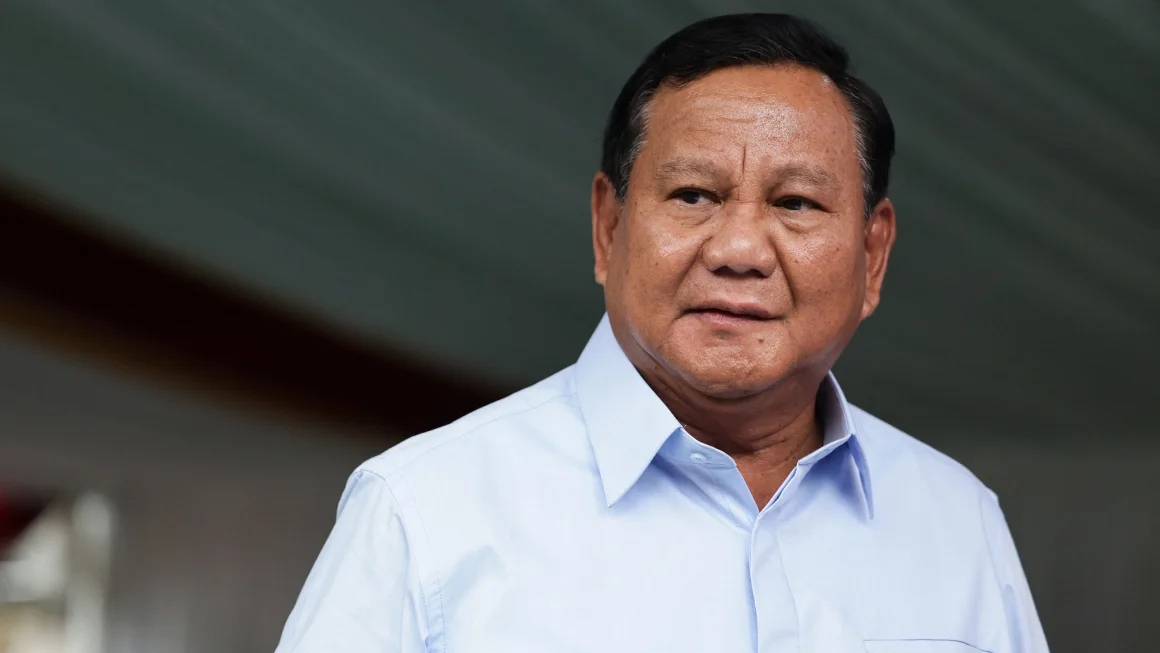Controversy Surrounds Appointment Of Army General Suspected Of 'Chinese Massacre' As Indonesia's Leader
Controversy surrounds appointment of army general suspected of 'Chinese massacre' as Indonesia's leader. This article delves into the background of the appointed general, examines the allegations against Prabowo Subianto, and explores the implications of his leadership for Indonesia and its relations with the global community.
Author:Rhyley CarneyReviewer:Paula M. GrahamFeb 21, 20243.7K Shares51K Views

Controversy surrounds appointment of army general suspected of 'Chinese massacre' as Indonesia's leader. This article delves into the background of the appointed general, examines the allegations against Prabowo Subianto, and explores the implications of his leadership for Indonesia and its relations with the global community.
Prabowo Subianto, a former army general, has been appointed to lead Indonesia, a move that has elicited mixed reactions among the populace. Controversy surrounds appointment of army general suspected of 'Chinese massacre' as Indonesia's leader.
Subianto's controversial past and alleged involvement in human rights abuses, including the 'Chinese Massacre,' have raised concerns about his suitability for the highest office in the country.
Subianto has long been accused of orchestrating a brutal crackdown on ethnic Chinese Indonesians during the tumultuous period of social unrest in the late 20th century. The massacre resulted in the deaths of hundreds, if not thousands, of individuals, leading to profound trauma and suffering within the affected communities.
Even though he didn't yet have enough votes to win Indonesia's presidential election, Prabowo Subianto delivered a press conference from his own swimming pool outside of Jakarta, half-naked, exuding the confidence of a man ready to assume leadership of one of the biggest democracies in the world.
The former army general, who was once barred from entering the country due to allegations of violating human rights, may be decades older than his rivals, who are both former governors in their 50s, but he insists he is more than capable of taking the reins. He is 72 years old.
From his pool, Prabowo told reporters:
“„The most important objective of democracy is giving people the leaders and representatives they want. I hope all parties understand the greater goal.- Prabowo Subianto
In March, the official results will be declared. However, early tallies, which have always been reliable, show that Prabowo received a whopping 60% of the vote, averting a June runoff.
The appointment of Subianto as Indonesia's leader has drawn condemnation from human rights organizations and advocacy groups worldwide. They have called for accountability and justice for the victims of the alleged massacre, urging Indonesian authorities to address the lingering wounds of the past.
Will Prabowo maintain a balancebetween China and Indonesia? This has a past to it. Western observers have attacked Prabowo for his prior record on human rights.
In the course of the interactive meetings and campaign debates, Prabowo painted a more composed image of working with China. It appears that he will confer with other ASEAN nations that face comparable Chinese threats when it comes to handling the nine-dash nine.
Since the five ASEAN nations that are experiencing this issue are not united, it is unclear where this will go. China is aggressively targeting Philippine outposts, and the Philippines is retaliating.
The Philippines and the US and Japan now have closer ties. Vietnam has suffered greatly in a manner comparable to China's, but it appears that it will accept the issue rather than risk its economic ties with China.
Similarly, Malaysia and Brunei appear to ignore Chinese incursions into their territories. The largest nation and economy in ASEAN, Indonesia, must now determine whether to pursue a more independent course of action, meaning that Chinese incursions must be met with diplomatic and military resistance.
As president, Prabowo is expected to carry on his defense minister colleague's statesmanlike demeanor. Since he did not run for president against Jokowi, it is unlikely that he will significantly depart from Jokowi's China policy.
Prabowo may choose to pursue a strategy of strategic autonomy and more engagement with the global south, while also maintaining a more impartial stance toward China, keeping doors open to other allies, and defending Indonesian interests.
China will still be significant in this, though maybe less so.
Conclusion
Controversy surrounds appointment of army general suspected of 'Chinese massacre' as Indonesia's leader. As Indonesia navigates this challenging period, it must confront its past with honesty and courage, ensuring that the voices of the victims are heard and their rights upheld. The international community must stand in solidarity with those advocating for accountability and human rights in Indonesia, supporting efforts to build a more just and equitable society for all.
Jump to

Rhyley Carney
Author

Paula M. Graham
Reviewer
Latest Articles
Popular Articles